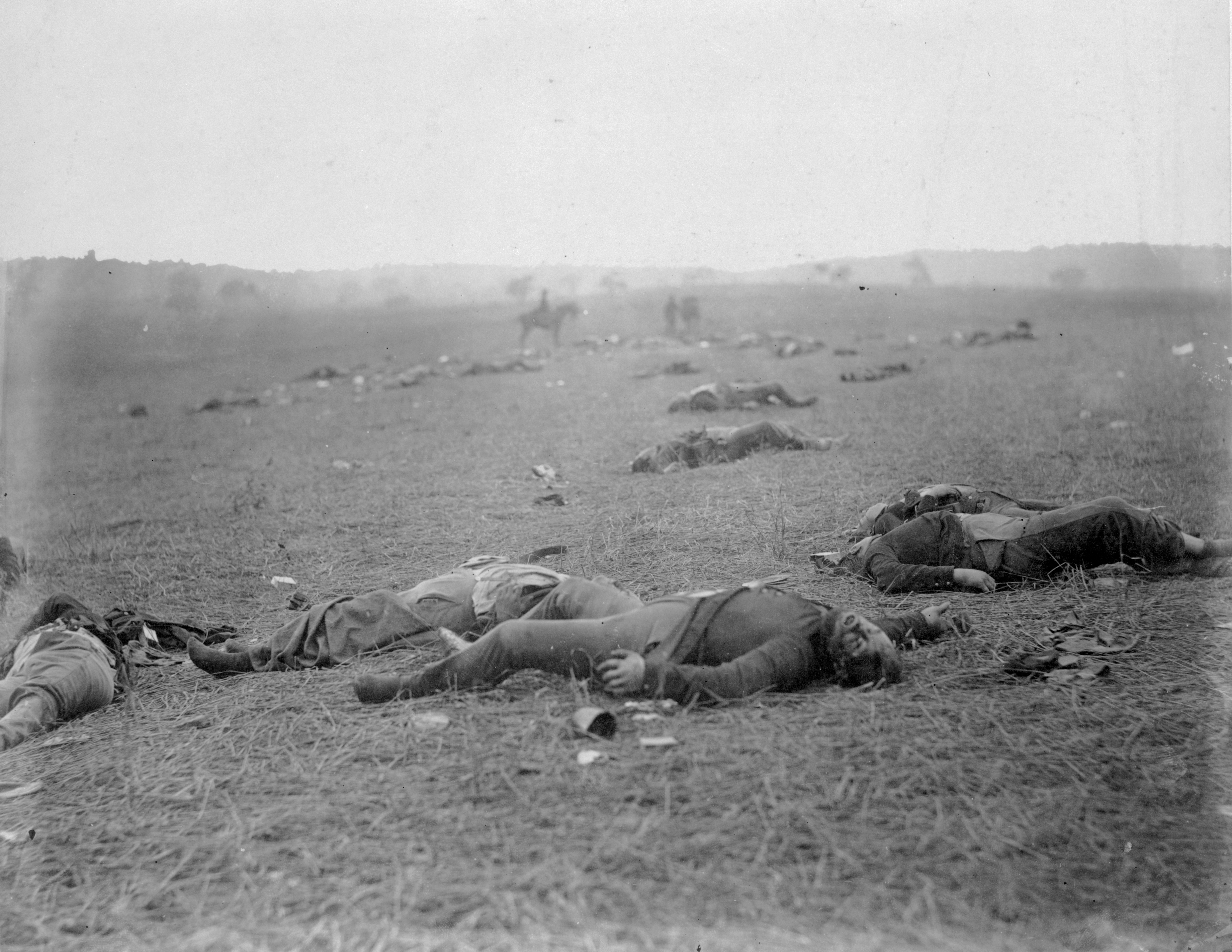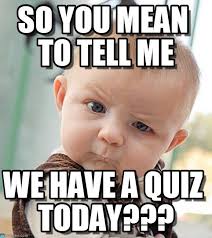Day 121: War is Kind
Students will be able to identify theme in poetry across cultures.
~~~~~~~~~~~~~~~~~~~~~~~~~~~~~~~~~~~~~~~~~~~~~~~
Today we read this poem by American author Stephen Crane (1871-1900) and I showed the photo, taken after the Battle of Gettysburg (July 1863), on the screen as accompaniment. Inadvertently, my history buff husband was a huge asset in giving today's lecture. Many of the quirky facts I was able to insert I learned from him. For example, he told me that soldiers during the Civil War were drilled in loading their rifles, because they would need to do it quickly in battle. However, due to lack of ammo, they didn't train on actually firing their weapons. During intense battle, the mind often shuts off emotion and reverts to training. As a result, rifles were found next to bodies that had eight or nine rounds loaded - and not a single one fired. The kids found that fascinating.
The first stanza of Crane's poem addresses a young lady whose cavalry fiance was killed in battle; the third stanza addresses a baby with a father dead of a chest wound; and the fifth talks to a mother whose son was killed in battle. The speaker, a deeply sarcastic, cynical individual, seems to simultaneously detail the cruelty and viciousness of war while not offering any real sympathy to the loved ones left behind. The students learned new vocabulary - "maiden" is often used to describe unmarried virgins in historical literature; "shroud" is laid on the body at a funeral; "hoarse" describes an overused voice, in this case the booming drums.
They also interpreted the line "War is kind" in two ways. Some felt it was sarcastic; war is anything but kind - it's bloody, cruel, sometimes pointless, but never kind. Others felt that the speaker, possibly a battle-hardened general with little to live for, felt that life was so cruel that to be dead was the kindest thing for the men, before they discovered the pain of living. It was by far the best discussion we've had in a long time, and I feel like the students actually cared about what this poem meant. Several of them were downloading The Red Badge of Courage on their phones at the end of class because I told them it was such an incredible, description-packed piece of American literature. I'm not sure how many will actually read it, but I was psyched to see them excited to read something that I told them was quality.
"War is Kind" by Stephen Crane
Do not weep, maiden, for war is kind.
Because your lover threw wild hands toward the sky
And the affrighted steed ran on alone,
Do not weep.
War is kind.
Hoarse, booming drums of the regiment, Little souls who thirst for fight, These men were born to drill and die. The unexplained glory flies above them, Great is the battle-god, great, and his kingdom -- A field where a thousand corpses lie.
Do not weep, babe, for war is kind.
Because your father tumbled in the yellow trenches,
Raged at his breast, gulped and died,
Do not weep.
War is kind.
Swift blazing flag of the regiment, Eagle with crest of red and gold, These men were born to drill and die. Point for them the virtue of slaughter, Make plain to them the excellence of killing And a field where a thousand corpses lie.
Mother whose heart hung humble as a button
On the bright splendid shroud of your son,
Do not weep.
War is kind.
~~~~~~~~~~~~~~~~~~~~~~~~~~~~~~~~~~~~~~~~~~~~~~~
Today we read this poem by American author Stephen Crane (1871-1900) and I showed the photo, taken after the Battle of Gettysburg (July 1863), on the screen as accompaniment. Inadvertently, my history buff husband was a huge asset in giving today's lecture. Many of the quirky facts I was able to insert I learned from him. For example, he told me that soldiers during the Civil War were drilled in loading their rifles, because they would need to do it quickly in battle. However, due to lack of ammo, they didn't train on actually firing their weapons. During intense battle, the mind often shuts off emotion and reverts to training. As a result, rifles were found next to bodies that had eight or nine rounds loaded - and not a single one fired. The kids found that fascinating.
The first stanza of Crane's poem addresses a young lady whose cavalry fiance was killed in battle; the third stanza addresses a baby with a father dead of a chest wound; and the fifth talks to a mother whose son was killed in battle. The speaker, a deeply sarcastic, cynical individual, seems to simultaneously detail the cruelty and viciousness of war while not offering any real sympathy to the loved ones left behind. The students learned new vocabulary - "maiden" is often used to describe unmarried virgins in historical literature; "shroud" is laid on the body at a funeral; "hoarse" describes an overused voice, in this case the booming drums.
They also interpreted the line "War is kind" in two ways. Some felt it was sarcastic; war is anything but kind - it's bloody, cruel, sometimes pointless, but never kind. Others felt that the speaker, possibly a battle-hardened general with little to live for, felt that life was so cruel that to be dead was the kindest thing for the men, before they discovered the pain of living. It was by far the best discussion we've had in a long time, and I feel like the students actually cared about what this poem meant. Several of them were downloading The Red Badge of Courage on their phones at the end of class because I told them it was such an incredible, description-packed piece of American literature. I'm not sure how many will actually read it, but I was psyched to see them excited to read something that I told them was quality.





Comments
Post a Comment